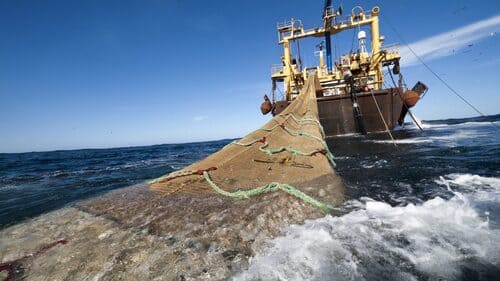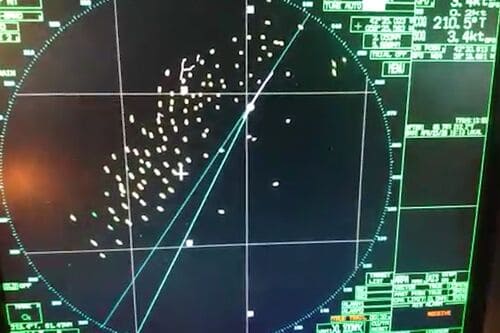* Cesar Augusto Lerena
The Undersecretary of Fisheries Carlos Liberman and the Secretary of the Malvinas of the Foreign Ministry Guillermo Carmona do not understand that ILLEGAL FISHING by foreign vessels in the Malvinas and in the Southwestern Atlantic threatens the development and generation of employment on the Argentine maritime coast and consolidates the British occupation in the Malvinas, and in more than 1.6 million km2 of maritime territory exploited by the United Kingdom.
Let's say it with all the letters: it is not 11,410 km2 of the Malvinas that are occupied by the United Kingdom. The Argentine maritime territory is invaded in an equivalent to 52% of the Exclusive Economic Zone and the Southwestern Atlantic, which should be administered by Argentina and Uruguay, has been foreignized. in their capacity as coastal States (FAO 41 Sub-Areas 2.3.; 3.1.and 3.2.) .
In several installments we will synthesize the work that several Latin American experts will present under the title " The demand of the coastal States of Latin America regarding Illegal Fishing and the control of migratory resources originating from the EEZ ", where the rights that they have are made clear. assist the coastal States and that have been neglected - in the case of Argentina - by the aforementioned officials, failing to fulfill their duties as public officials due to lack of application of the United Nations Convention on the Law of the Sea, various norms of the FAO and national laws 24,543, 24,608, 24,922, 26,386 and 27,564.

ILLEGAL FISHING and with the technical term IUU (illegal, undeclared, unregistered) is understood to be that which is carried out voluntarily and/or freely, without fully or partially complying with the international or national regulation of origin and/or without independent control. and/or if they are captured on the high seas without prior agreement to those species that interact or are associated or are migratory originating from the EEZ or vice versa or, any act is carried out, of any nature, that threatens the sustainability of the fishing species and /or contaminating the environment ( César Lerena, Ob.Cit.2022 ). More than fifty irregularities detailed in the aforementioned work are classified as ILLEGAL FISHING and all of them occur on the high seas of the Southwest Atlantic and several of them in the Argentine EEZ.
The name ILLEGAL FISHING is self-sufficient to define by itself the predatory actions of fishing activities, so in our opinion calling it “illegal, unreported, unregistered” (IUU) fishing minimizes the actions and contributes to general confusion, since We could add to these an endless series of adjectives. The execution of all or any of the predatory practices or practices that contribute to these are nothing other than executing ILLEGAL FISHING, of greater or lesser severity with respect to its negative effects in terms of sustainability. of species, pollution of the marine environment or economic-social damage to developing States.
The FAO International Action Plan (IPO) (2001), developed as an instrument within the framework of the Code of Conduct for Responsible Fisheries, is a standard that, among other things, states (3.3.2), that IUU FISHING is carried out. when: " in areas or in relation to fish stocks for which there are no applicable conservation or management measures and where such fishing activities are carried out in a manner that is not in line with conservation responsibilities of the living marine resources that are the responsibility of the State under international law », that is, the case of fishing carried out in the Malvinas area without control of Argentina and, on the high seas in the Southwest Atlantic, when fishing without control any by the State of origin and without agreement with the coastal State (Argentina) on the migratory resources originating in the Argentine EEZ, which is why and despite the “freedom of fishing” indicated in UNCLOS, it must be classified as ILLEGAL FISHING (we will advance in this in future articles).
All of this is ratified in FAO Program 21 (1992) where emphasis is also placed on " the management of deep-sea fishing" and where it is specified that it is in this area where "the problems of uncontrolled fishing arise." In summary, this Program makes it clear that the issue focuses on ordering flag States that fish remotely on the high seas.
On the high seas, the fishing of undeveloped coastal States is very unrepresentative and 85% of remote fishing on the high seas is carried out by five countries: China, Spain, Taiwan, Japan and South Korea, which of the total of 37 million hours of fishing occupy approximately 25 million.The problem, then, is not caused and maintained by all international fishing activity, but rather generated by only five States, for which almost all the countries in the world met to approve a Convention that produced imperfect fishing regulations for all States - especially the undeveloped coastal States - to which was added the New York Agreement that irregularly exceeds what is already regulated in UNCLOS. In reality, rather than promoting a Convention, some 160 countries should be telling these five countries and others four or five (Russia, the United Kingdom, Norway, Portugal, etc.) “ stop fishing remotely” (!) and agree with the coastal States to get the proteins they need.
While this is happening, despite the loopholes in international legislation and the demands that current legislation in Argentina imposes on Argentine officials, they have done absolutely nothing to reverse the plundering of national resources by foreign vessels. both in the Malvinas, and on the migratory resources of the Argentine EEZ on the high seas. And this is serious, not only because of biological, environmental, economic, labor and social damage that it causes to the country, but because this uncontrolled foreign presence favors the occupation British in Malvinas and consolidates the economy of the islanders.

What do these responsible officials do at the national level? Nothing. They do not even apply current national legislation to punish illegal fishing in the Malvinas. What do they do at the international level to defend national interests? Nothing. The secretary of Malvinas states that the most relevant policies of that agency are “to persist in the claim; consolidate internal consensus and amplify support; show seriousness and solidity and take advantage of the international context" (Proyecto Sur, 4/8/2022) repeating the serious mistake made by Ambassador Lucio García del Solar on August 16/17, 1989, prolegomena to the Madrid Agreements that consolidate the British position in the Malvinas and, that this secretary understands that “ it is not so easy to dismantle ” (PS, 4/8/2022). The same error and the same effects 33 years later. And the Undersecretary of Fisheries? In 2008 he presented a “National Action Plan”, which is a theoretical statement of obligations that are already found in the laws and manuals of public departments, without any practical effect. A useless text that, in light of the facts, has already demonstrated its uselessness to eliminate or reduce ILLEGAL FISHING, since it does not contain a single concrete action aimed at modifying the brutal predation carried out by foreign vessels in the Malvinas area and on the high seas. And, what is worse, this official understands that fishing for migratory resources originating from the Argentine EEZ on the high seas is not illegal fishing . Nothing good can be expected: If the diagnosis is made wrong, a good treatment cannot be prescribed and the worst prognosis can be imagined. .
Argentina and the world are losing the fight against ILLEGAL FISHING and this is due to legislation that proposes an erroneous order (UNCLOS, New York Agreement and others), which Argentina already partially observed in 1995 and which, the main Countries and communities (China, the European Union, the United Kingdom, South Korea, Japan, Taiwan, etc.) that should lead the care of the marine environment and fishing resources subsidize remote fishing and do not penalize those who do not agree with the Coastal States to regulate high seas fishing under equitable and sustainable conditions. In this regard, the FAO estimates that at least 30% of catches are illegal, generating about 36 billion dollars annually (FAO, 2016, p 05-06 ) irregularly and, in unfair competition with those who fish, comply with national and international standards.
When in the Southwest Atlantic, uncontrolled foreign vessels extract every year an estimated volume of 750,000 tons of high seas fishing products originating from the Argentine EEZ and 250,000 tons from the Malvinas area arrogantly occupied by the United Kingdom and violating the Resolution 31/49 of the United Nations, it is absolutely evident that the policy of multilateral organizations has failed and, by the way, that of the competent organizations (Ministry of Foreign Affairs and Malvinas; Agriculture, Livestock and Fisheries; Defense and Security) of Argentina as well, although we see some progress in this last area, despite a budget well below the regional average.
Argentina, for 50 years, has suffered this capture by foreign vessels in the Malvinas area and of the species that migrate from the EEZ to the high seas, causing very serious damage to the ecosystem, since, with or without a British license, They extract one million tons annually from the Southwest Atlantic, for an estimated value between 2,600 and 4,000 million dollars of gross raw materials; but, also, impeding the economic, labor and social development of the country and, especially of the towns of the Buenos Aires and Patagonian coast, constituting - as we will discuss in a future article - an attack on security.
It is not enough for the governor of Tierra del Fuego to announce legal actions against illegal fishing in the Malvinas, where if joint action is not taken with the Nation, biologically and territorially analyzed, there is a high risk of deepening the problem.
When it comes to issues that affect national sovereignty and the well-being of all Argentines, partisan or sectoral issues are not of interest: “friends are accompanied to the cemetery, one is not buried with them.”In front are the great powers that are coming for our proteins and our neglected marine and island spaces.






